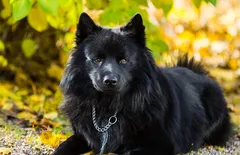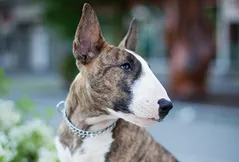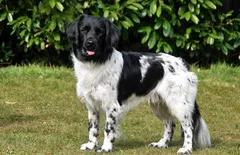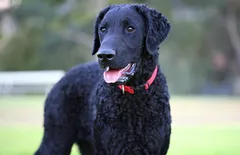
Dachshund
Dachshunds come in two sizes and in three coat types of various colors and patterns. They are friendly, bold, curious and always up for an adventure.
Overall Status
| Height | 5 to 9 inches |
| Temperament | Friendly, Curious, Spunky |
| Weight | 11 to 32 pounds |
| Life Expectancy | 12 to 15 years |
| Coat Color | Black, Black and Tan, Blue, Brown, Red, Silver, White |
| Barking Level | Frequent |
Quick Factors
| Playfulness | |
| Dog Friendly | |
| Exercise Need | |
| Grooming Needs | |
| Strangers Friendly | |
| Family Affectionate |
Daily Care
Grooming Tips
Smooth Dachshunds do not require much grooming at all. They are generally free from “doggie odor” and unless they have gotten into the mud, don't need bathing very often. Wiping a Smooth Dachshund down with a wet wipe or a damp washcloth can keep him looking shiny between baths. Smooth Dachshunds shed, but not too much, so a once-per-week brushing will suffice.Wirehaired Dachshunds, on the other hand, require regular brushing in order to keep their coats free from mats and debris, and require more frequent bathing than their smooth-coated cousins. Two to three times per year, a Wirehaired Dachshund's coat needs to be stripped, which basically involves pulling the dead hair out of the dog's body. It sounds barbaric, but a groomer can show you how to do it in a manner that will not hurt the dog.Longhaired Dachshunds require regular bathing, and must be blow-dried in order to look their best. Daily brushing is required to keep the hair free of mats and debris.Dachshund's ears can be prone to infection, so regular ear cleaning should be part of all grooming regimens.
Exercise Tips
Many owners think that because they are so small, Dachshunds don’t require moreexercisethan just running around the house.However, they do need regular exercise not only to stay fit but also to build strong muscles to support and protect their back. Two walks every day of moderate length should be sufficient.To avoid injury, never allow your Dachshund to run up and down stairs or jump on or off furniture. Because they are very social, Dachshunds don’t do well as outdoor dogs—they want to be with their humans.
Feeding Tips
Because the Dachshund is prone to obesity, you should watch its food intake carefully. Don’t let it free feed or overeat. Its best to used dry food lower in calories than canned food (another bonus – it’s better for its teeth, too).
Health Tips
The average life expectancy for this breed is between 12 and 15 years. Breed health concerns may include sick sinus syndrome,patent ductus arteriosus, pattern baldness, cutaneous asthenia, immune-mediated thrombocytopenia, lipomas, liposarcoma,congenital deafness,intervertebral disc disease, atlantoaxial subluxation and a number of ocular disorders or conditions.
Trainability
Although the Dachshund is not a difficult dog to train, you will need firmness and consistency to make the lessons stick. Once properly trained, the breed makes a great companion and family dog.Since this breed is so loyal, training strengthens the bond. Start training early in order to eliminate habits such as excessive digging and barking.It’s important to note that Dachshunds believe it is the alpha in the family, so you need to show this dog who is the boss. If not disciplined, the Dachshund can become stubborn, but always reward training with high praise.If a Dachshund gets bored, it will turn to destructive behavior. Always leave them with constructive toys so it always has something to do. As well, crate training works well for housebreaking this dog.
History
The Dachshund originated in Germany in the sixteenth century. They were bred and trained to chase down prey, such as a badger (Dachshund means ‘Badger Dog’) or fox, enter its burrow, kill it, and retrieve it.The Dachshund was recognized as a distinct breed in 1910 and has gradually increased in popularity to become a favored pet. Famous Dachshunds include Picasso’s dog Lump, who may have inspired some of his works, and Waldi, the first Olympic Mascot and symbol of the 1972 Summer Olympics in Munich, Germany.






